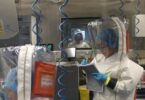 In the 1960s, it became very popular to get up in the middle of the night and stumble around with one eye open to heat up sterilized bottles of formula for infants. Doctors did not encourage women to breastfeed. In fact, one woman related to us that in 1966 she told her doctor that she planned to breastfeed her new baby, and the doctor responded with an incredulous, “Why would you want to do that?”
In the 1960s, it became very popular to get up in the middle of the night and stumble around with one eye open to heat up sterilized bottles of formula for infants. Doctors did not encourage women to breastfeed. In fact, one woman related to us that in 1966 she told her doctor that she planned to breastfeed her new baby, and the doctor responded with an incredulous, “Why would you want to do that?”
The medical community has since begun to appreciate the many benefits of breast milk for babies, and for the past few decades have again encouraged women to feed their babies the real stuff for as long as reasonably possible. And it’s been working. According to the Centers for Disease Control, nearly 74 percent of women in 2004 breastfed for awhile after giving birth. Only 11 percent breastfeed their children exclusively (no formula or other supplements) for six straight months, but breastfeeding has once again become the medically-supported thing to do. Still, doctors don’t necessarily admit to their former hubris in trying to out-do God in the area of baby nutrition, and many people to this day do not appreciate the multitude of wonderful built-in benefits of women nursing their babies.
However. The purpose of this article is not simply to promote breastfeeding. Some women who would love to breastfeed find they cannot for one reason or another, and our purpose is not to frustrate those mothers. Our purpose here – and we hope we can communicate the amazement and wonder implicit in these facts – is to raise appreciation for the precious care God took in His plan for bringing new life into the world. Even beyond the question of infant nutrition, breastfeeding provides a blanket of protection that smooths the way for both new baby and mommy. A multitude of mercies can be found in the simple act of suckling a child, and they demonstrate the goodness and wisdom of our great God.
The Placenta:
Many women can testify to the aggravation and pain of having nurses pressing on their stomaches or tugging on the umbilical cord to get the placenta to come out after the baby is born. God made a much better way. When the mother begins to nurse after the baby’s birth, the hormone oxytocin is released by the pituitary gland, sending a message to the uterus to release the placenta and to continue the contractions necessary to deliver it. It may take some time, but without any stomach mashing or cord tugging, without leaving pieces behind, the placenta will generally come out on its own with a few more pushes by the new mom.
The Uterus:
The release of oxytocin also naturally makes the uterus squeeze back into place. This is important, because the uterus has been supplying blood to the placenta, and it needs to close off those open blood vessels. (Vigorously rubbing the uterus can also help it tighten up to prevent the mother from losing too much blood.) Breastfeeding can initially be painful, especially with a woman’s third or fourth (etc) child, because her uterus is tightening back up during the days after birth. It’s good, though. It also helps get rid of that post-preggo tummy.
Nutrients:
Mother’s milk is healthiest for the baby. Formulas are “formulas” – they are mixed together with all the ingredients formula chemists know how to put in them. But, mother’s milk is alive. It contains living cells and antibodies that provide the most easily assimilated nutrition for a baby’s little system, as well as a multitude of ingredients that formula-makers just don’t know how to duplicate. Breastmilk is easiest for the baby to digest, and babies who nurse have fewer tummy aches (unless Mom goes to town on spicy Thai food one night). Fewer tummy aches means a happier baby, which means happier parents.
Antibodies:
Babies get their first natural disease-fighting resources from their moms’ milk, especially during the first few weeks. A study published in the journal Pediatrics in April, 2010 concluded that nearly 900 babies and billions of dollars in medical costs would be saved every years if new mothers in the US simply breast-fed for the first six months. And the antibodies in breast milk do more than just pass on immunity to disease. Mother’s milk has long been used to disinfect the outside of babies’ bodies too. It may sound odd to some, but a squirt of breast milk on a scratch or mosquito bite, or even in the eye of child with pink eye, is a time-proven aid in the healing process. There are also indications that babies who breast feed are less likely to develop allergies than formula-fed babies.
Bonding:
After birth, oxytocin continues to be released during nursing. It’s a multi-purpose hormone that has also been called the “hormone of love” because it encourages emotional bonding between people when it is released. Oxytocin helps momma to bond to her child.
Beyond oxytocin, though, nursing provides for plenty of mother-baby time. Anybody can bottle feed a baby, but only momma can nurse, and momma can’t nurse while she’s running around being busy. She has to sit and rock and hold that baby and look into the baby’s eyes. Not only does that help a mother to get to know this new human in her life, but it helps the baby to bond to his mommy too. Babies can’t see very well; they can’t focus on everything at all distances. But, the distance from the breast to a mother’s face is perfect for allowing a baby’s eyes to focus. Nursing forces mommy and baby to spend one-on-one time with each other, and that is essential for getting to know one another.
Weight Loss:
Nursing is God’s weight loss plan for new mothers, especially for mothers who nurse for more than six months. All those months of packing on weight during pregnancy were part of God’s plan to make sure mom could easily feed her new baby in the big wide world. As the baby grows and needs more food, he dips into those fat reserves mommy built up while she was pregnant, and after enough months go by, that fat can start peeling off. That is, unless Mom enjoys her daily hot fudge sundaes too much.
Mom’s are not the only beneficiaries in this regard. Babies who breastfeed tend to be less likely to be obese as children.
This may be because a nursing mother passes on the hormone leptin to her infant, which helps regulate appetite. Babies who breast feed are also not encouraged to finish a bottle, and so get used to eating only as much as they need. Experts also think that the lower protein content of breast milk actually helps program an infant’s body in a way the makes obesity later on less likely.
It’s Free:
Formula is expensive. Breast milk, on the other hand, is free and readily available. Not only that, but it is sterile and the correct temperature, and it is much easier than formula to provide in the middle of the night.
Birth Control:
It is not fool proof, but nursing holds off a woman’s first post-birth menstrual period for months. The problem is, the new mother does not know when her first period will be, so it doesn’t offer complete freedom. But, it does reduce the amount of estrogen coursing through a woman’s system each month.
Breast Cancer Prevention: Because of the fewer menstrual cycles, the nursing mother has fewer showers of estrogen washing her body, and therefore has a lower chance for breast cancer. Breastfeeding also physically changes the cells in the breast in a way that actually helps them resist the mutations that can cause cancer. The link between breastfeeding and a decreased risk for breast cancer is quite strong, and is demonstrated in a 517-page report called “Food, Nutrition, Physical Activity, and the Prevention of Cancer: a Global Perspective” published by the American Institute for Cancer Research – the result of five years of study by nine independent teams of scientists.
Safer Babies:
Studies have shown that mothers who nurse are less likely to abuse their children. There are probably several reasons for this. First of all, babies who nurse tend to experience fewer tummy aches and cry less. It’s very difficult to handle a child that cries uncontrollably and won’t be comforted because his formula upsets his stomach. Mothers who bond closely with their children are also less likely to be easily frustrated by them, and mothers who breastfeed are also mothers who get more sleep than those who have to get up in the middle of the night for feedings.
Are mothers who bottle feed their babies bad? Of course not. Some women try and try to nurse, and they can never get the baby to get the hang of it. Some women just don’t produce enough milk to feed their babies. In Third World countries, women who have this problem often have to rely on other nursing mothers to help them out. Some women find that their babies are still hungry after nursing, and need to drink formula to feel full. Some babies like the bottle better because they can drink more food faster. And some mothers have to work to survive, and nursing just doesn’t fit in very well. But, there are still a lot of benefits to nursing, and even if new moms can nurse once a day, it is good both for them and the baby.
We human beings can feel as though God has just dumped us on this earth with no apparent purpose or direction. Yet, from the very beginning of our lives, He developed a plan to give us the comfort, protection, and nourishment we need through somebody designed to love us and care for us. Not only does breastfeeding help the newborn baby, it helps the mother as well. Everything God does has purpose (often a multitude of purposes); sometimes, like the doctors in the 1960s, we just need to find out what those purposes are.
Source: http://www.khouse.org







